Breakthrough National Coverage for Juneteenth
NPR Staffers Read Emancipation Proclamation
‘Middle-Aged White Guy’ to Exit in Philly
Diversity Drops Among Education Journalists
Rights Groups Target Facebook Advertisers
Petition Urges Naming School for Hunter-Gault
On Diversity, Good News and Bad as IRE Elects
. . . Half the Board Ignored the Warnings
Short Takes
Support Journal-ismsDorothy Tucker, president of the National Association of Black Journalists, is interviewed on CBS News after a Pittsburgh Post-Gazette reporter was removed from covering protests after posting a tweet on looting.
Homepage montage: Clockwise from top left: Blayne Alexander (NBC News), Trymaine Lee (MSNBC), Sara Sidner (CNN), Omar Jimenez (CNN), Fredricka Whitfield (CNN), Rachel Scott (ABC News), Jericka Duncan (CBS News), Alex Perez (ABC News), Antonia Hylton (NBC News) and Victor Blackwell (CNN). (Credit: Hollywood Reporter)
Breakthrough National Coverage for Juneteenth
The news media’s racial reckoning took an intense and extraordinary turn this week with a highly influential Associated Press decision to capitalize the “B” in “black”; unprecedented national coverage accorded Juneteenth, once a regional holiday; resignations by white editors who deemed themselves racially incompatible with the requirements of the job and what seemed like waves of black journalists coming forward or being asked to tell their stories.
“This is a historic moment in American history and in race relations. It requires us to re-examine our coverage and concentrate resources on the issues of race, ethnicity and identity that clearly deserve heightened attention,” said Marty Baron, executive editor of The Washington Post.
The Post announced “the creation of new roles designed to enhance coverage of the growing national discourse on race in this historic moment and beyond, including a Managing Editor for Diversity and Inclusion, a senior leadership position with responsibilities such as convening regular coverage discussions focused on race and identity and the identification and recruitment of candidates.”
More than a dozen newsroom positions are to be focused on race, according to the announcement, made after talks with the News Guild.
Post media columnist Margaret Sullivan revisited her tenure as editor of The Buffalo News, when her “bad news judgment hurt Buffalo’s black community. Ten years later, the lessons linger,” in the words of the headline.
Sullivan quoted black journalist Farai Chideya. “It’s our moonshot,” Chideya told CNN’s Brian Stelter on Sunday — “a rare chance to seize the historic moment and make long-overdue change happen in newsrooms where true diversity has never been achieved,” Sullivan wrote, paraphrasing Chideya.
Outside of newsrooms, community members were taking down Confederate statues and other symbols of racial oppression if officials weren’t doing so quickly enough. Monuments to racist newspaper publishers were among them. And corporation executives were announcing diversity initiatives and financial help to black institutions, such as Reed Hastings, the CEO of Netflix, and his wife, Patty Quillin, donating $120 million to historically black colleges and universities.
Quaker Oats, owner of the 131-year-old brand of Aunt Jemima, announced it would change the product name in an effort “to make progress toward racial equality,” Angela R. Riley and Sonia K. Katyal wrote in the New York Times.
“The brand had long capitalized on a romantic view of antebellum American slavery, even going so far as to hire an actual former slave to impersonate the character of Aunt Jemima at the 1893 Chicago World’s Fair (marking the first time a living person was hired to impersonate a trademark).
“. . . the Mars corporation followed suit, announcing that its Uncle Ben’s rice products would similarly ‘evolve’ in light of recent events. Even Mrs. Butterworth’s pancake syrup, its bottle embodying a racist caricature of the shape of a black woman, is undertaking a ‘complete brand and package review.’ ”
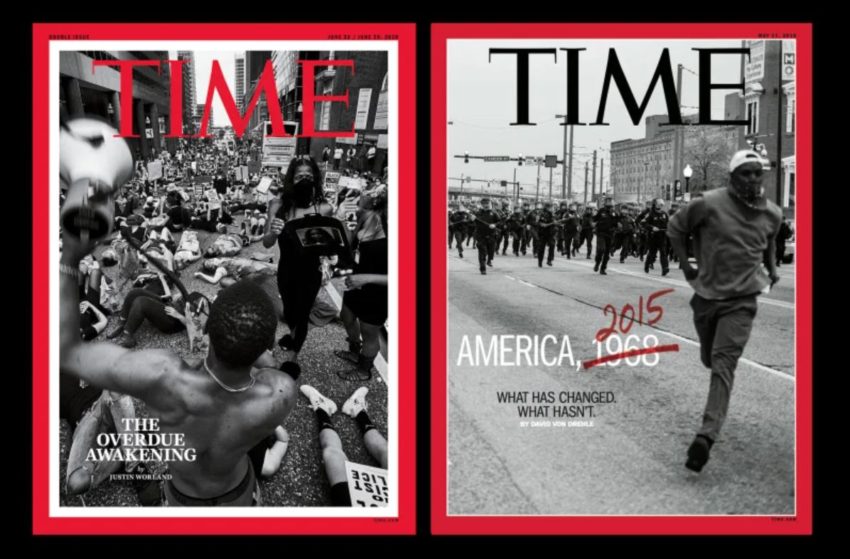
And at the Pittsburgh Post-Gazette, “two black journalists . . . who told The New York Times that their bosses had unfairly kept them from covering protests against racism and police violence have taken steps to redress their complaints,” Rachel Abrams reported for the Times Tuesday.
“Michael Santiago, a Pulitzer Prize-winning photojournalist, left the paper. And Alexis Johnson, a reporter, sued it. . . .”
Juneteenth warranted its own network television specials, though other reporters imprecisely described June 19, 1865, as “the day slaves were freed.” It was actually the day enslaved people in Galveston, Texas, belatedly received the word.
Because its stylebook is the bible in many newsrooms, the Associated Press’ rule change on “Black” ranks among The New York Times’ 1930 decision to capitulate to black pressure and capitalize the “N” in “Negro,” and the move to recognize in print the shift from “Negro” to “black” in the late 1960s.
“Use of the capitalized Black recognizes that language has evolved, along with the common understanding that especially in the United States, the term reflects a shared identity and culture rather than a skin color alone,” according to the AP stylebook change.
The AP decision was one of “hundreds” similarly made by news organizations in the span of barely more than week, Elahe Izadi wrote Thursday in the Washington Post.
However, there was no unanimity on whether “white,” “brown,” “yellow” or “red” should also be capitalized.
“As a global news organization, we are continuing to discuss within the U.S. and internationally whether to capitalize the term white,” the AP said Friday. “Considerations are many and include any implications that doing so might have outside the United States. We will have a decision within a month.”
The National Association of Black Journalists said this month, “NABJ also recommends that whenever a color is used to appropriately describe race then it should be capitalized, including White and Brown.”
CNN agreed. “When referring to the racial categories of Black and White, CNN style is changing to capitalizing both words,” wrote Tim Langmaid, vice president and senior editorial director, in an evening email to staffers, Lindsey Ellefson reported Thursday for The Wrap.
“ ‘Both words denote a racial or ethnic identity and therefore should be upper case when referring to a person, community, culture, etc., in the same way CNN capitalizes other descriptors of race, ethnicity and shared identity, including African American, Native American, Hispanic or Latino, Asian, Asian American, African, and other terms,’ he explained. . . .”
NJ Advance, publisher of the Star-Ledger in Newark, N.J., said no to a capital “W” for “white.” Outside “of the white supremacist movement, we did not find a widespread expressed desire by anyone to uppercase ‘white.’ ” Editor Kevin Whitmer wrote Tuesday.
That could be because people in power aren’t as invested in what others call them, as the late historian Sterling Stuckey wrote in his 1987 book, “Slave Culture: Nationalist Theory and the Foundations of Black America.“
As quoted in this space a week ago, Stuckey wrote, “The final resolution of the names controversy is not likely to come until African peoples as a whole have won freedom, a development inevitably linked to their status in America.”
NPR Staffers Read Emancipation Proclamation
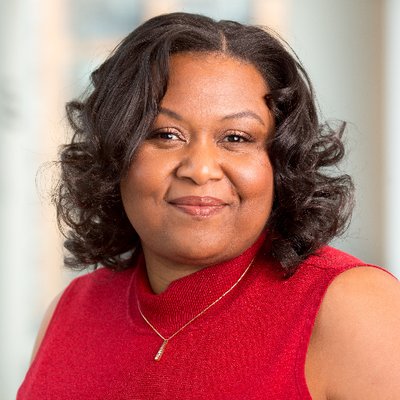 One of the many observances of Juneteeth, the day in 1865 when enslaved people in Galveston, Texas, learned they had been freed, was a reading of the Emancipation Proclamation Friday on NPR’s “Morning Edition.”
One of the many observances of Juneteeth, the day in 1865 when enslaved people in Galveston, Texas, learned they had been freed, was a reading of the Emancipation Proclamation Friday on NPR’s “Morning Edition.”
“Executive producer of Morning Edition Kenya Young (pictured) pulled together a group of NPR’s African American hosts & correspondents to read the Emancipation Proclamation on Morning Edition today in celebration of Juneteenth, like we do every year with the Declaration of Independence on July 4th,” NPR spokeswoman Isabel Lara messaged Journal-isms.
“Lincoln’s words are read by weekend All Things Considered host Michel Martin, Morning Edition host Noel King, It’s Been A Minute host Sam Sanders, NPR Music’s Rodney Carmichael, NPR Politics Juana Summers, newscast host Dwane Brown, All Things Considered host Audie Cornish, Here & Now host Tonya Mosley, National reporter Brakkton Booker, newscast host Korva Coleman, Code Switch host Gene Demby, Midwest correspondent for NPR Cheryl Corley, White House correspondent Ayesha Rascoe, TV critic Eric Deggans and senior producer Walter Ray Watson.”
‘Middle-Aged White Guy’ to Exit in Philly
 “Philadelphia Magazine editor Tom McGrath (pictured) will step down at the end of the summer, telling his staff the publication needs to evolve and the company should hire a replacement who isn’t ‘a middle-aged white guy,‘ ” Justine McDaniel and Julie Shaw wrote Tuesday for the Philadelphia Inquirer.
“Philadelphia Magazine editor Tom McGrath (pictured) will step down at the end of the summer, telling his staff the publication needs to evolve and the company should hire a replacement who isn’t ‘a middle-aged white guy,‘ ” Justine McDaniel and Julie Shaw wrote Tuesday for the Philadelphia Inquirer.
“His departure — which he described in a memo to employees as partly a personal decision and partly an attempt to bring about change — comes amid the national reckoning over systemic racism that has gripped the nation since the May 25 killing of George Floyd by Minneapolis police. It followed a newsroom-wide teleconference last week about diversity at the magazine after tweets from former senior editor Fabiola Cineas (pictured, below) called out the company’s inaction on improving diversity.
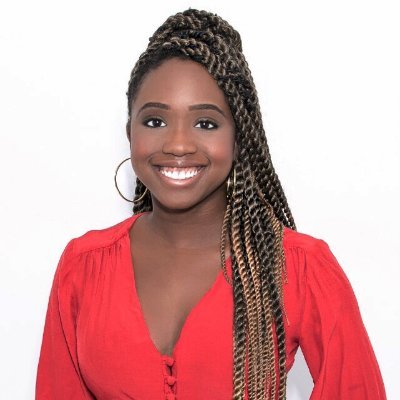 “ ‘I’ve given almost every ounce of energy I have to this job for the last decade, and at the moment I’m not sure I have enough in my tank to do the job as well as it needs to be done,’ McGrath, 56, wrote in a message to staffers on Monday. ‘But I also have in my head the column that our colleague Ernest Owens wrote last week, noting that real change in our world will only come about when some power is redistributed.’
“ ‘I’ve given almost every ounce of energy I have to this job for the last decade, and at the moment I’m not sure I have enough in my tank to do the job as well as it needs to be done,’ McGrath, 56, wrote in a message to staffers on Monday. ‘But I also have in my head the column that our colleague Ernest Owens wrote last week, noting that real change in our world will only come about when some power is redistributed.’
“On Tuesday, the magazine’s editorial staff called on its parent company, Metrocorp, to enact a plan to hire and retain employees of color, diversify leadership, audit past coverage, and represent black Philadelphians in coverage, among other steps. . . .”
McGrath “was in charge when the magazine stirred outrage with a 2013 cover story titled ‘Being White in Philly’ that was widely denounced as racist, and then again in 2015 when it ran a cover image without any black students on a guide to city schools. Both times, after community criticism, McGrath pledged to diversify the magazine’s staff. . . .”
- Reed Albergotti, Washington Post: Black creators sue YouTube, alleging racial discrimination
- Char Adams, New Republic: Where Do Black Journalists Go From Here?
- Luqman Adeniyi, CNN: Racism in America: Reflecting on my role as a journalist in this moment
- Anika Anand, LION Publishers: How 13 Local News Publishers Have Responded to the Black Lives Matter Demonstrations
- Kwame Anthony Appiah, The Atlantic: The Case for Capitalizing the B in Black
- Jeremy Barr, Hollywood Reporter: “I Have Struggled”: Black TV Journalists Talk George Floyd Coverage, Industry Diversity (June 13)
- Andrew Beaujon, Washingtonian: Washington Post Unveils Suite of Initiatives to “Build a Stronger Culture of Diversity and Equity”
- Joyce Ferriabough Bolling, Boston Herald: Juneteenth celebrates freedom, honors challenges overcome
- Malachy Browne, Christina Kelso and Barbara Marcolini, New York Times: How Rayshard Brooks Was Fatally Shot by the Atlanta Police (video analysis, June 14, updated June 17)
- Jim Brunner, Seattle Times: Fox News runs digitally altered images in coverage of Seattle’s protests, Capitol Hill Autonomous Zone (June 12, updated June 14)
- Russell Cobb, tulsapeople.com: ‘No apology’: Richard Lloyd Jones and the 1921 Race Massacre (Feb. 20, 2019); and “The Undertow,” “On the Media,” NPR (audio)
- Rob Copeland, Wall Street Journal: Google Sets Hiring Goal to Advance Black Executives (paywall)
- Antonio De Loera-Brust, Latino Rebels: Latinos Owe Black Americans Everything (May 30)
- Alisha Ebrahimji and Alicia Lee, CNN: Meet the Asian Americans helping to uproot racism in their communities (June 13)
- Joe Flint and John Jurgensen, Wall Street Journal: For Black Producers, Canceling ‘Cops’ Is an Empty Gesture (paywall)
- Kerry Flynn, CNN: Colin Kaepernick is joining Medium’s board to write about racism
- David Folkenflik, NPR: Rancor Erupts In ‘LA Times’ Newsroom Over Race, Equity And Protest Coverage
- Tracey Ford, Adrienne Samuels Gibbs, Jada Gomez, medium.com: Introducing Momentum, A Medium blog about the fight against anti-Black racism
- Dan Frosch and Ben Chapman, Wall Street Journal: Black Officers Say Discrimination Abounds, Complicating Reform Efforts (paywall)
- Jesse J. Holland, Foreign Policy: I’m a Black Reporter. Covering America Almost Broke Me.
- Principal Chief Chuck Hoskin Jr., Cherokee Nation, indianz.com: Why we must have difficult conversations about race and justice
- Janine Jackson, Fairness & Accuracy In Reporting: What Journalism Needs Is Not More Diversity, but Less White Supremacy
- Cynthia Adina Kirkwood blog: Smashing the Shackles of Invisibility
- Maris Kreizman, Los Angeles Times: Want to fix the racial disparity in book advances? Pay assistants more
- Jon Lafayette, nexttv.com: Court TV Race Special to Air on All Katz Nets
- Jon Lafayette, nexttv.com: Sunwise Responds to Criticism Over ‘Black Editor’ Post
- Sharon Lerner, The Intercept: The Coronavirus Pandemic and Police Violence Have Reignited the Fight Against Toxic Racism
- John Maher, Publishers Weekly: NBCC [National Book Critics Circle] Board Gutted as Fallout Over Leaked Emails, Race Issues Widens
- Lonnae O’Neal, The Undefeated: Black Lives Matter has moved from the political outskirts to the center of America’s conversation about itself
- Shira Ovide, New York Times: How Social Media Has Changed Civil Rights Protests
- Natasha Roy and Agnes Constante, NBC News: 75 ways Asian Americans and Pacific Islanders are speaking out for Black lives
- Khadeeja Safdar, Jeffrey A. Trachtenberg and Benjamin Mullin, Wall Street Journal: America’s Newsrooms Face a Reckoning on Race After Floyd Protests (paywall)
- Gabe Schneider, medium.com: How to erase Black journalists
- Society of Environmental Journalists: SEJ Stands With Journalists of Color Speaking Out About Systemic Racism (June 9)
- Tampa Bay Times: Tampa Bay Times drops mugshot galleries
- Linn Washington Jr., Philadelphia Inquirer: In 1951, Philly’s police brutality was brought to the United Nations. In 2020, are we any better?
- Elizabeth Wellington, Philadelphia Inquirer: Systemic racism has affected all of us. Here’s how to start unlearning its harmful lessons
- David Williams, CNN: A Missouri woman asked Merriam-Webster to update its definition of racism and now officials will make the change (June 12)
- Isaac Windes, Beaumont (Texas) Enterprise: Longtime weatherman resigns from KBMT
- Kimmy Yam, NBC News: How Bruce Lee became a symbol of solidarity with the Black community (June 11)
- Kimmy Yam, NBC News: Officer who stood by as George Floyd died highlights complex Asian American, black relations (June 1)
- Karen Yuan, Fortune: Working While Black: Stories from black corporate America
- Lana Zak, CBS News: NABJ President Dorothy Tucker: “Hire more black managers” (video)
Diversity Drops Among Education Journalists
“Education journalism is losing the talented journalists from diverse racial backgrounds that it desperately needs. With these losses, education journalism loses the chance to change the stories it tells and the ways it tells them, “”Alexander Russo reported Thursday for the Poynter Institute.
“Now in its fifth year, The Grade’s 2020 newsroom diversity roundup includes some bright spots. Education journalism is somewhat more racially diverse than journalism overall. A few hires and promotions are cause for celebration. The racial diversity numbers are improving here and there.
“But bright spots and incremental progress aren’t really good enough anymore — if they ever were. . . .”
Rights Groups Target Facebook Advertisers
 “Several American civil-rights groups, including the Anti-Defamation League and the NAACP, are encouraging big advertisers to pull spending from Facebook Inc. to protest what they say is the company’s failure to make its platform a less-hostile place,” Deepa Seetharaman reported Wednesday for the Wall Street Journal. (paywall). (Pictured: Facebook chief executive Mark Zuckerberg)
“Several American civil-rights groups, including the Anti-Defamation League and the NAACP, are encouraging big advertisers to pull spending from Facebook Inc. to protest what they say is the company’s failure to make its platform a less-hostile place,” Deepa Seetharaman reported Wednesday for the Wall Street Journal. (paywall). (Pictured: Facebook chief executive Mark Zuckerberg)
“The campaign, announced Wednesday, comes after years of private discussions between these groups and Facebook, which the activists say have amounted to little change in the way the social-media giant enforces its policies around hate speech and misinformation. The groups took out a full-page ad in the Los Angeles Times on Wednesday urging advertisers to pull their spending on Facebook for July.
“ ‘Today, we are asking all businesses to stand in solidarity with our most deeply held American values of freedom, equality and justice and not advertise on Facebook’s services in July,”’the ad says. ‘Let’s send Facebook a powerful message: Your profits will never be worth promoting hate, bigotry, racism, antisemitism and violence.’
“Facebook has invested heavily in recent years in workers and technology to guard against election interference and better police its platforms, which has resulted in sharp gains in the removal of hate speech and other objectionable content. . . .”
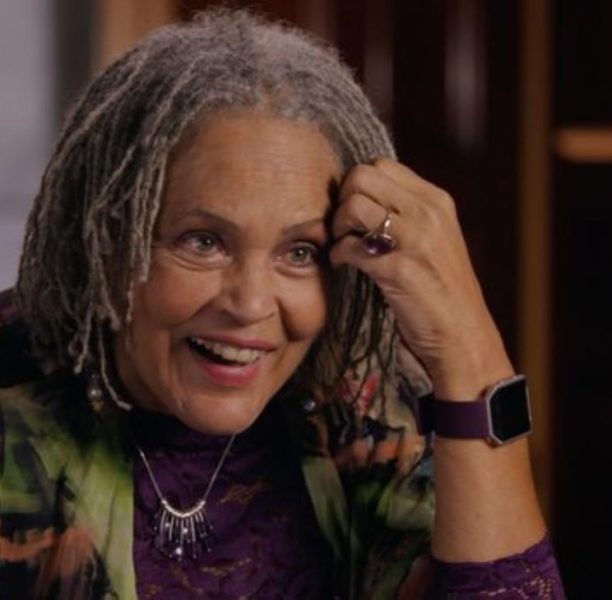
Petition Urges Naming School for Hunter-Gault
Two University of Georgia alumnae are circulating a Change.org petition to rename the school’s Grady College of Journalism & Mass Communication after veteran journalist Charlayne Hunter-Gault, David Hackett and Megan McDonald wrote Monday for Sarasota magazine.
As of Saturday, the petition had more than 8,500 signatures.
“According to the petition, Henry Grady (1850-1889), the journalist and orator after whom the college is currently named, has long been heralded in the Georgia education system as a progressive Southern leader.
“But Grady’s tenure at the Atlanta Constitution resulted in headlines like ‘Lynching Too Good for the Black Miscreant Who Assaulted Mrs. Bush: He Will Be Lynched.’ And in his famous ‘New South’ speech in 1886, Grady said, ‘The supremacy of the white race of the South must be maintained forever and the domination of the negro race resisted at all points and at all hazards — because the white race is the superior race.’ …”
Hackett and McDonald also wrote, “In 1961, Hunter-Gault was the first black student to integrate the University of Georgia. She later became a star reporter with The New Yorker and the first Harlem bureau chief for The New York Times. In the 1990s, she worked for PBS [NewsHour] and as the Africa correspondent for NPR and CNN, covering the democratic transformation of South Africa under Nelson Mandela. . . .”
When Gwen Ifill’s alma mater, Simmons University announced in 2017 that it would name its College of Media, Arts and Humanities after the late PBS journalist, it apparently became the first majority-white college to name a school after an African American journalist.
Meanwhile, “Colorado Mesa University will be removing the name of Walter Walker, a former member of the Ku Klux Klan and a former publisher of the Grand Junction Daily Sentinel, from its soccer and lacrosse stadium,” Dan West reported June 13 for the Daily Sentinel in Grand Junction, Colo.
- Rachel Abrams, New York Times: The A.P. Apologizes for ‘Thought for Today’ From Jefferson Davis
- Karin D. Berry, The Undefeated: It was past time for Aunt Jemima’s image to go
- Joe Davidson, Washington Post: We’re still honoring those who fought against the U.S.A. Why, President Trump?
- Antonia Mortensen, Hada Messia, Sharon Braithwaite and Amy Woodyatt, CNN: Protesters target statue of famed Italian journalist who married a 12-year-old in Eritrea
- Michele L. Norris, Washington Post: Why did it take so long to set Aunt Jemima free?
- Angela R. Riley and Sonia K. Katyal, New York Times: Aunt Jemima Is Gone. Can We Finally End All Racist Branding?
- Spencer Silva, Media Matters for America: How Fox figures defend racist monuments
- Barry Svrluga, Washington Post: The Redskins’ name is the shameful statue of the NFL. Tear it down.
- Mark Trahant, Indian Country Today: 10 people whose statues should replace Columbus
- Stephen Whyno, Associated Press: Debate on racism renews calls for Redskins to change name
Congratulations to the 7 #journos elected to the IRE Board of Directors! https://t.co/Rr1uaU5MW0@ForsythJenn, @IndyMarisaK, @j_la28, @mjrochester, @kat__stafford, @jodiupton, @bymarkwalker pic.twitter.com/kKuqfUg3tX
— IRE and NICAR (@IRE_NICAR) June 20, 2020
On Diversity, Good News and Bad as IRE Elects
Cheryl W. Thompson of NPR was elected board president of Investigative Reporters and Editors in 2018, becoming the organization’s first African American leader in its 43-year history. She was re-elected in 2019. But she was not re-elected by her fellow board members over the weekend, 7-6. Jodi Upton, IRE treasurer, professor at Syracuse University’s Newhouse School and a former USA Today editor, is to succeed her.
A separate election among the membership produced seven new members, including African Americans Kat Stafford of the Associated Press, Mark Walker of the New York Times Washington bureau and Mark Rochester, editor-in-chief of Type Investigations
IRE member James V. Grimaldi of the Wall Street Journal tweeted, “History was made tonight for the preeminent U.S. journalism organization @IRE_NICAR when the membership elected the first majority female board with the most African Americans ever. . . .”
But Grimaldi tweeted later, “Sadly, the bad news is that the board elected an all-white executive committee. Given what’s happening in our country today, that’s pretty sad.”
Pretty shocking outcome — the vote was 7-6 — over who would be the IRE president. The first black woman was defeated in a year where the country is in an uproar over racial issues. Pretty shocking and outrageous @jodiupton https://t.co/a7WqxK3NWS
— JamesVGrimaldi (@JamesVGrimaldi) June 21, 2020
Andrea Fuller, an Upton supporter, called Upton “a hard working lady data journo badass . . . She is TIRELESS. She has ASHEVILLE ties. What else do you want?”
Thompson tweeted, “So proud that @kat__stafford @bymarkwalker and @mjrochester were elected to the
@IRE_NICAR board tonight. Look forward to serving with them. #yallrock!” but also, “Already missing @NorbertoSantana on the @IRE_NICAR board. He was the lone Latino voice who kept it real. Our loss. Glad to call him my friend.”
. . . Half the Board Ignored the Warnings
The prospect of an all-white executive board was raised before the IRE vote, according to Mark J. Rochester (pictured), who became a new member of the board.
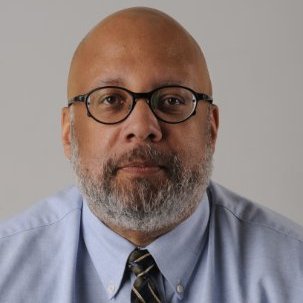 Rochester messaged Journal-isms on Sunday:
Rochester messaged Journal-isms on Sunday:
“In the 40+ years since the founding of IRE, only a handful of African American journalists had ever been elected to the board of directors.
“An historic election witnessed the membership advance three Black members to the board, bringing the total to four, including Cheryl W. Thompson, who was not on this year’s ballot.
“During a live webcast of the membership meeting, some IRE members who were watching warned against changing the board’s top leadership position, stressing the need to stay the course of growth, financial stability and increased diversity that Thompson had overseen the last few years. The industry upheaval caused by COVID-19 and nationwide protests were further cited by members, as well as newly elected board member Mark Walker in nominating her for the presidency, and myself supporting the nomination.
“But roughly half the board decided to ignore those warnings. Jodi Upton, who had been board treasurer, also was nominated for the role. With two contenders, board procedures called for a secret ballot, conducted via web form, with the vote ending 7-6 for a new board president. None of the Black board members was nominated for the vice president, treasurer or secretary offices. I declined nomination for an “at-large” executive committee appointment, which is not defined in the IRE bylaws. . . .”
Short Takes
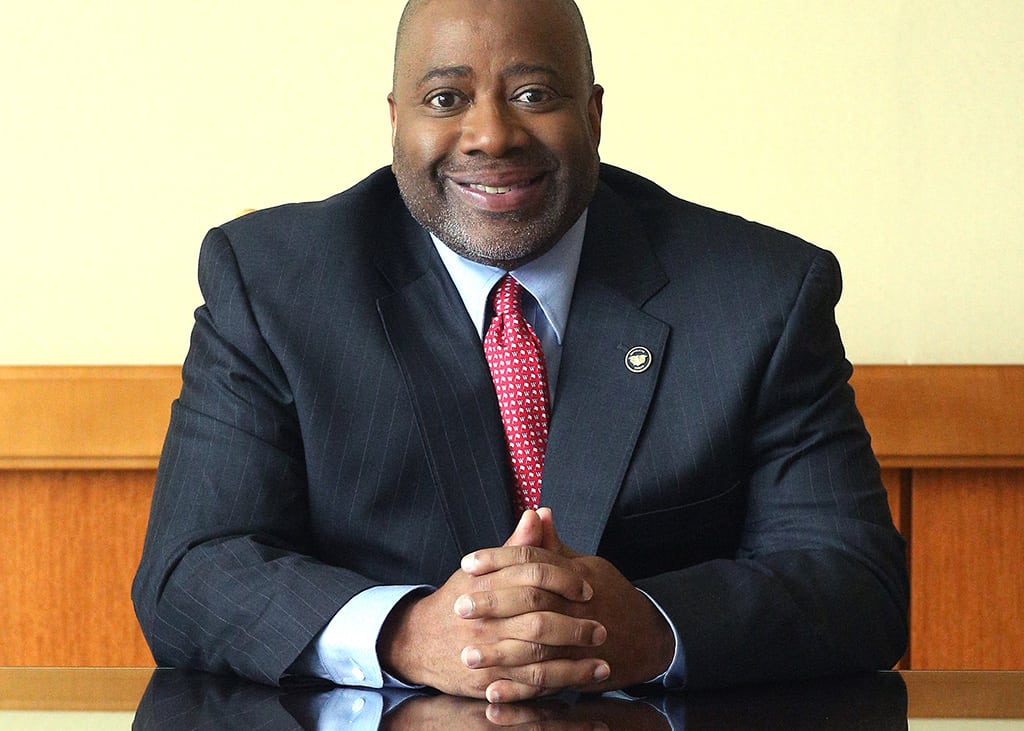 Raynard Jackson (pictured), a black Republican operative who enjoys skewering “liberals” but displays shaky command of the facts, has been dropped by the National Newspaper Publishers Association, which syndicates his column to its member black newspapers. Jackson’s columns “have not met the standards that NNPA requires,” Benjamin F. Chavis, president and CEO of NNPA, told Journal-isms on Thursday. The telephone conversation followed a column in which Jackson denounced “radical liberal journalists like Joy Reid from MSNBC, Don Lemon from CNN, [and] Roland Martin, who are putting more poison into the black community than any drug dealer – who are killing more black folks than any white person with a sheet over their face.” Previously: “Why Do Outlets Still Run Raynard Jackson?“
Raynard Jackson (pictured), a black Republican operative who enjoys skewering “liberals” but displays shaky command of the facts, has been dropped by the National Newspaper Publishers Association, which syndicates his column to its member black newspapers. Jackson’s columns “have not met the standards that NNPA requires,” Benjamin F. Chavis, president and CEO of NNPA, told Journal-isms on Thursday. The telephone conversation followed a column in which Jackson denounced “radical liberal journalists like Joy Reid from MSNBC, Don Lemon from CNN, [and] Roland Martin, who are putting more poison into the black community than any drug dealer – who are killing more black folks than any white person with a sheet over their face.” Previously: “Why Do Outlets Still Run Raynard Jackson?“
- Univision Radio has terminated its contract with Luis Dávila Colón, host of the El Azote radio show in Puerto Rico, after he used the N-word on the air, Latino Rebels reported Wednesday. “The context of the conversation was Dávila Colón’s defense of the controversy surrounding Kobbo Santorrosa’s La Comay show, who had portrayed Ana Irma Rivera Lassén, a Black Puerto Rican woman politician, as a stereotypical Black servant. According to Dávila Colón, Santarrosa’s comments through his puppet character were not racist because Santarrosa now identifies as Black and if Blacks in the United States can say words like ‘n•gger’ to each other, why can’t Blacks in Puerto Rico make fun of each other too? . . .”
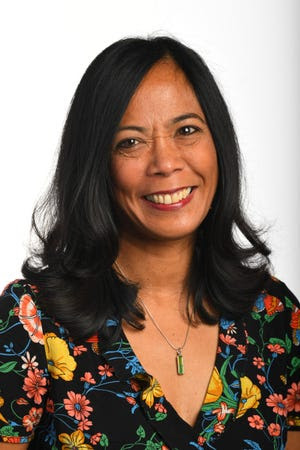 “Roxanna Scott (pictured) has been named managing editor for sports at USA TODAY, the newspaper reported Wednesday. “A former president of the Association for Women in Sports Media, Scott has spent the last year as an assistant managing editor for USA TODAY Sports and managing editor of Golfweek, a website and magazine that provides golf coverage for the USA TODAY Network. Scott has directed coverage of six Olympic Games at USA TODAY. . . .”
“Roxanna Scott (pictured) has been named managing editor for sports at USA TODAY, the newspaper reported Wednesday. “A former president of the Association for Women in Sports Media, Scott has spent the last year as an assistant managing editor for USA TODAY Sports and managing editor of Golfweek, a website and magazine that provides golf coverage for the USA TODAY Network. Scott has directed coverage of six Olympic Games at USA TODAY. . . .”
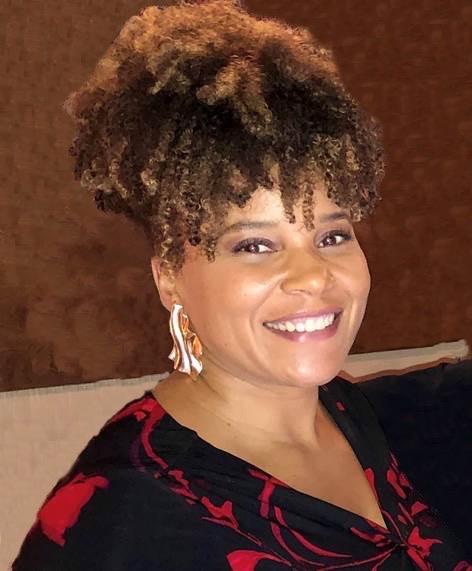 Lorna Jones (pictured), managing editor of the CBS News Washington Bureau, has been promoted to deputy Washington bureau chief effective July 6, CBS announced Wednesday. “Jones will report to Executive Vice President Ingrid Ciprian-Matthews, who becomes acting bureau chief for the CBS News Washington Bureau on July 6 as part of larger changes within the bureau. . . .”
Lorna Jones (pictured), managing editor of the CBS News Washington Bureau, has been promoted to deputy Washington bureau chief effective July 6, CBS announced Wednesday. “Jones will report to Executive Vice President Ingrid Ciprian-Matthews, who becomes acting bureau chief for the CBS News Washington Bureau on July 6 as part of larger changes within the bureau. . . .”
- The Native American Journalists Association has scheduled 2020 board elections online for Aug. 26- Sept. 10, NAJA announced on Wednesday. There are three vacancies for three-year terms, which will begin Sept. 11.
 “Emmy-winning reporter Dave Lopez (pictured) announced his retirement Saturday on the 43rd anniversary of his first day at what is now KCBS-TV Channel 2,” mynewsla.com reported June 13. “43 years ago today (6/13/77), a young reporter began his career at CBS2 in LA,” Lopez tweeted. “Can’t think of a better way to put a ribbon on it all. So today … I am announcing my retirement. 72 years old, 43 years at CBS and 48 in LA. It’s time. No regrets. Just grateful. Signing off June 30th.” Lopez is the longest-tenured TV news reporter in Los Angeles, Peter Larsen reported Thursday for the Orange County Register.
“Emmy-winning reporter Dave Lopez (pictured) announced his retirement Saturday on the 43rd anniversary of his first day at what is now KCBS-TV Channel 2,” mynewsla.com reported June 13. “43 years ago today (6/13/77), a young reporter began his career at CBS2 in LA,” Lopez tweeted. “Can’t think of a better way to put a ribbon on it all. So today … I am announcing my retirement. 72 years old, 43 years at CBS and 48 in LA. It’s time. No regrets. Just grateful. Signing off June 30th.” Lopez is the longest-tenured TV news reporter in Los Angeles, Peter Larsen reported Thursday for the Orange County Register.
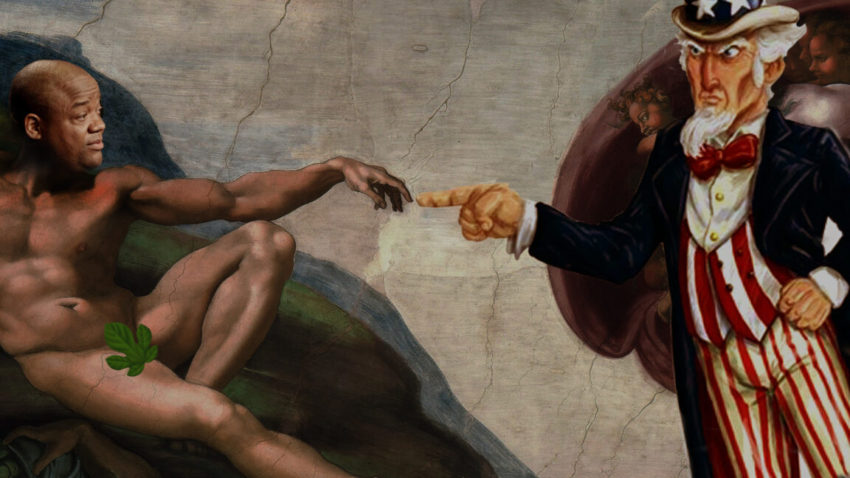
- “I’m a Christian American. God and country,” sports commentator Jason Whitlock wrote Monday, updated Tuesday from his new home, Outkick.com. “At age 53, those two words define me. They explain my decision to partner with Clay Travis and Sam Savage in an effort to turn Outkick.com into a powerful media platform, a national distiller of truth, humor and fun. I do not know Clay and Sam’s religious beliefs. I’ve never asked. I likely never will. Outkick is not and will never be a religious platform. It will be the premier destination for the analysis of sports and society at large. . . .” Dallas Jackson wrote for Outkick in June 15, “Whitlock most recently spearheaded FOX Sports 1’s studio show ‘Speak For Yourself,’ the fastest-growing show in sports television. Whitlock previously worked at ESPN and the Kansas City Star. His work in Kansas City from 1994 to 2010 earned him national recognition. . . .”
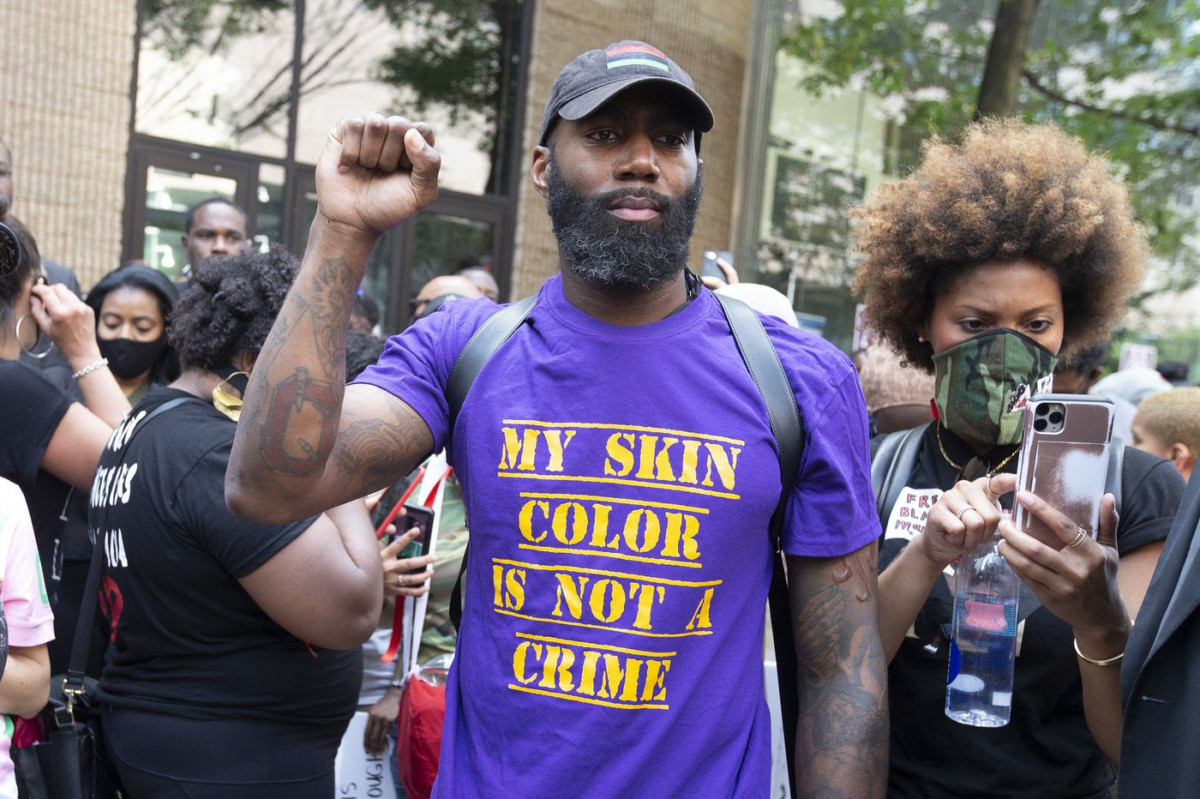 “Former Eagles safety Malcolm Jenkins (pictured by Charles Fox, Philadelphia Inquirer) is playing for the New Orleans Saints next season, but he has also landed a new job as a paid contributor on CNN,” Rob Tornoe reported Monday for the Philadelphia Inquirer. Tornoe also wrote, “It marks the first time CNN has hired an active player of any sport as an on-air contributor, and comes after the National Football League’s admission it was wrong not to listen to players’ concerns about racism and systematic oppression of black people.” Jenkins is cofounder of the Players Coalition and an outspoken advocate of racial and social equality.
“Former Eagles safety Malcolm Jenkins (pictured by Charles Fox, Philadelphia Inquirer) is playing for the New Orleans Saints next season, but he has also landed a new job as a paid contributor on CNN,” Rob Tornoe reported Monday for the Philadelphia Inquirer. Tornoe also wrote, “It marks the first time CNN has hired an active player of any sport as an on-air contributor, and comes after the National Football League’s admission it was wrong not to listen to players’ concerns about racism and systematic oppression of black people.” Jenkins is cofounder of the Players Coalition and an outspoken advocate of racial and social equality.
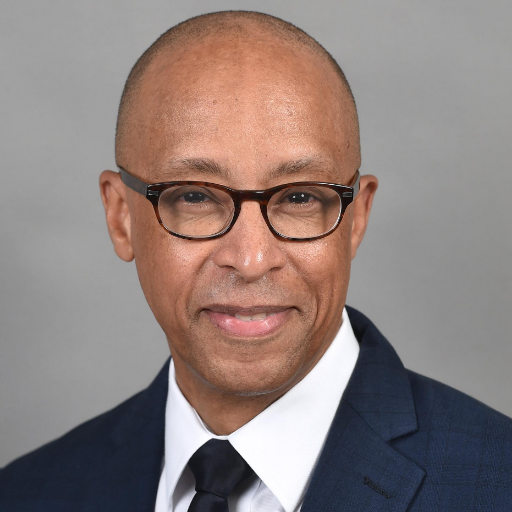 At Newsday, Calvin Lawrence Jr. (pictured) has been promoted to the new newsroom role of director of community affairs and newsroom development. “Calvin will lead Newsday’s ongoing efforts to strengthen and grow our connections with Long Island communities while also directing our newsroom recruiting and training. A staff announcement said, “He rejoined Newsday in 2018 after more than 10 years as Online News Editor for ABC News. In his previous 18 years at Newsday, Calvin’s jobs ranged across our newsroom: Assistant Managing Editor, National Editor, Editorial Writer, Deputy City Editor, Assistant LI Editor and Copy Desk Editor. . . .”
At Newsday, Calvin Lawrence Jr. (pictured) has been promoted to the new newsroom role of director of community affairs and newsroom development. “Calvin will lead Newsday’s ongoing efforts to strengthen and grow our connections with Long Island communities while also directing our newsroom recruiting and training. A staff announcement said, “He rejoined Newsday in 2018 after more than 10 years as Online News Editor for ABC News. In his previous 18 years at Newsday, Calvin’s jobs ranged across our newsroom: Assistant Managing Editor, National Editor, Editorial Writer, Deputy City Editor, Assistant LI Editor and Copy Desk Editor. . . .”
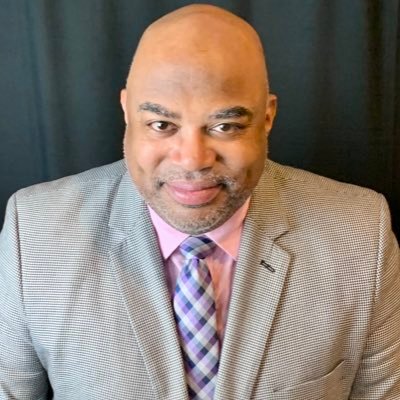 Jesse J. Holland (pictured), who worked for a quarter century for the Associated Press, is joining George Washington University as an assistant professor of journalism. “He is currently serving as a Distinguished Visiting Scholar In Residence at the John W. Kluge Center of the Library of Congress and weekend host for C-SPAN Washington Journal,” the university said. Holland also wrote “Black Men Built the Capitol: Discovering African American History In and Around Washington, D.C.,” and “The Invisibles: The Untold Story of African American Slaves in the White House.”
Jesse J. Holland (pictured), who worked for a quarter century for the Associated Press, is joining George Washington University as an assistant professor of journalism. “He is currently serving as a Distinguished Visiting Scholar In Residence at the John W. Kluge Center of the Library of Congress and weekend host for C-SPAN Washington Journal,” the university said. Holland also wrote “Black Men Built the Capitol: Discovering African American History In and Around Washington, D.C.,” and “The Invisibles: The Untold Story of African American Slaves in the White House.”
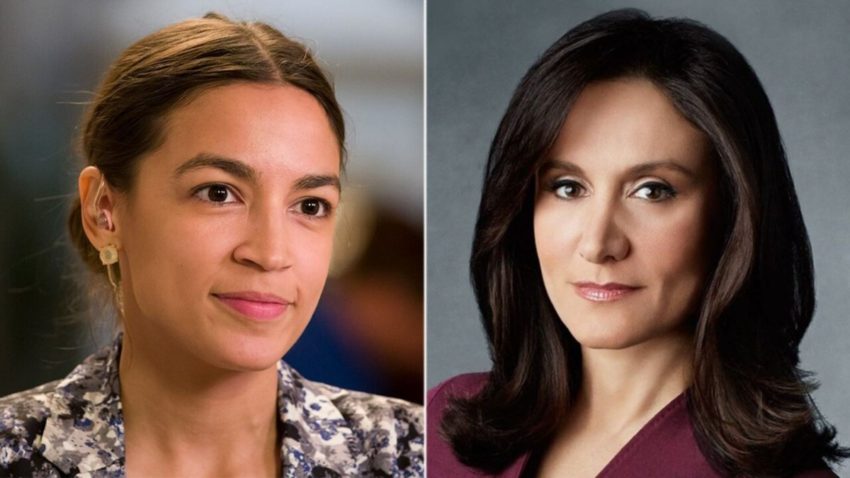
Wall Street titans are pumping thousands of dollars into the campaign coffers of Michelle Caruso-Cabrera, right, who is challenging Alexandria Ocasio-Cortez in New York’s Democratic primary .
- Michelle Caruso-Cabrera, a former CNBC correspondent and contributor, is running against Rep. Alexandria Ocasio-Cortez, D-N.Y., in Tuesday’s Democratic primary. “High-profile names on Wall Street are spending big to ensure AOC’s defeat,” Andy Meek reported Friday for brg.com.
- “GoFundMe suspended pro-Trump personality Candace Owens from its fundraising platform on Sunday, after Owens raised more than $200,000 on the site for an Alabama cafe whose owner called George Floyd a “thug,’ ” Will Sommer reported June 7 for the Daily Beast.
 “Beginning immediately, Jamie Stockwell (pictured), a deputy National editor who grew up in south Texas, will expand her role to include Race/Related, as the acting editor,” New York Times National Editor Marc Lacey announced Monday. “Jamie, whose grandparents immigrated from Mexico, joined The Times two years ago from The San Antonio Express-News, where she was the managing editor and launched a number of newsletters and other ventures aimed at connecting with readers. . . .”
“Beginning immediately, Jamie Stockwell (pictured), a deputy National editor who grew up in south Texas, will expand her role to include Race/Related, as the acting editor,” New York Times National Editor Marc Lacey announced Monday. “Jamie, whose grandparents immigrated from Mexico, joined The Times two years ago from The San Antonio Express-News, where she was the managing editor and launched a number of newsletters and other ventures aimed at connecting with readers. . . .”

Facebook users: “Like” “Richard Prince’s Journal-isms” on Facebook.
Follow Richard Prince on Twitter @princeeditor
Richard Prince’s Journal-isms originates from Washington. It began in print before most of us knew what the internet was, and it would like to be referred to as a “column.” Any views expressed in the column are those of the person or organization quoted and not those of any other entity. Send tips, comments and concerns to Richard Prince at journal-isms-owner@yahoogroups.com
View previous columns (after Feb. 13, 2016).
- Diversity’s Greatest Hits, 2018 (Jan. 4, 2019)
- Book Notes: Is Taking a Knee Really All That? (Dec. 20, 2018)
- Book Notes: Challenging ’45’ and Proudly Telling the Story (Dec. 18, 2018)
- Book Notes: Get Down With the Legends! (Dec. 11, 2018)
- Journalist Richard Prince w/Joe Madison (Sirius XM, April 18, 2018) (podcast)
- Richard Prince (journalist) (Wikipedia entry)
- February 2018 Podcast: Richard “Dick” Prince on the need for newsroom diversity (Gabriel Greschler, Student Press Law Center, Feb. 26, 2018)
- Diversity’s Greatest Hits, 2017 — Where Will They Take Us in the Year Ahead?
- Book Notes: Best Sellers, Uncovered Treasures, Overlooked History (Dec. 19, 2017)
- An advocate for diversity in the media is still pressing for representation, (Courtland Milloy, Washington Post, Nov. 28, 2017)
- Morgan Global Journalism Review: Journal-isms Journeys On (Aug. 31, 2017)
- Diversity’s Greatest Hits, 2016
- Book Notes: 16 Writers Dish About ‘Chelle,’ the First Lady
- Book Notes: From Coretta to Barack, and in Search of the Godfather
- Journal-isms’ Richard Prince Wants Your Ideas (FishbowlDC, Feb. 26, 2016)
- “JOURNAL-ISMS” IS LATEST TO BEAR BRUNT OF INDUSTRY’S ECONOMIC WOES (Feb. 19, 2016)
- Richard Prince with Charlayne Hunter-Gault,“PBS NewsHour,” “What stagnant diversity means for America’s newsrooms” (Dec. 15, 2015)
- Book Notes: Journalists Follow Their Passions
- Book Notes: Journalists Who Rocked Their World
- Book Notes: Hands Up! Read This!
- Book Notes: New Cosby Bio Looks Like a Best-Seller
- Journo-diversity advocate turns attention to Ezra Klein project (Erik Wemple, Washington Post, March 5, 2014)

